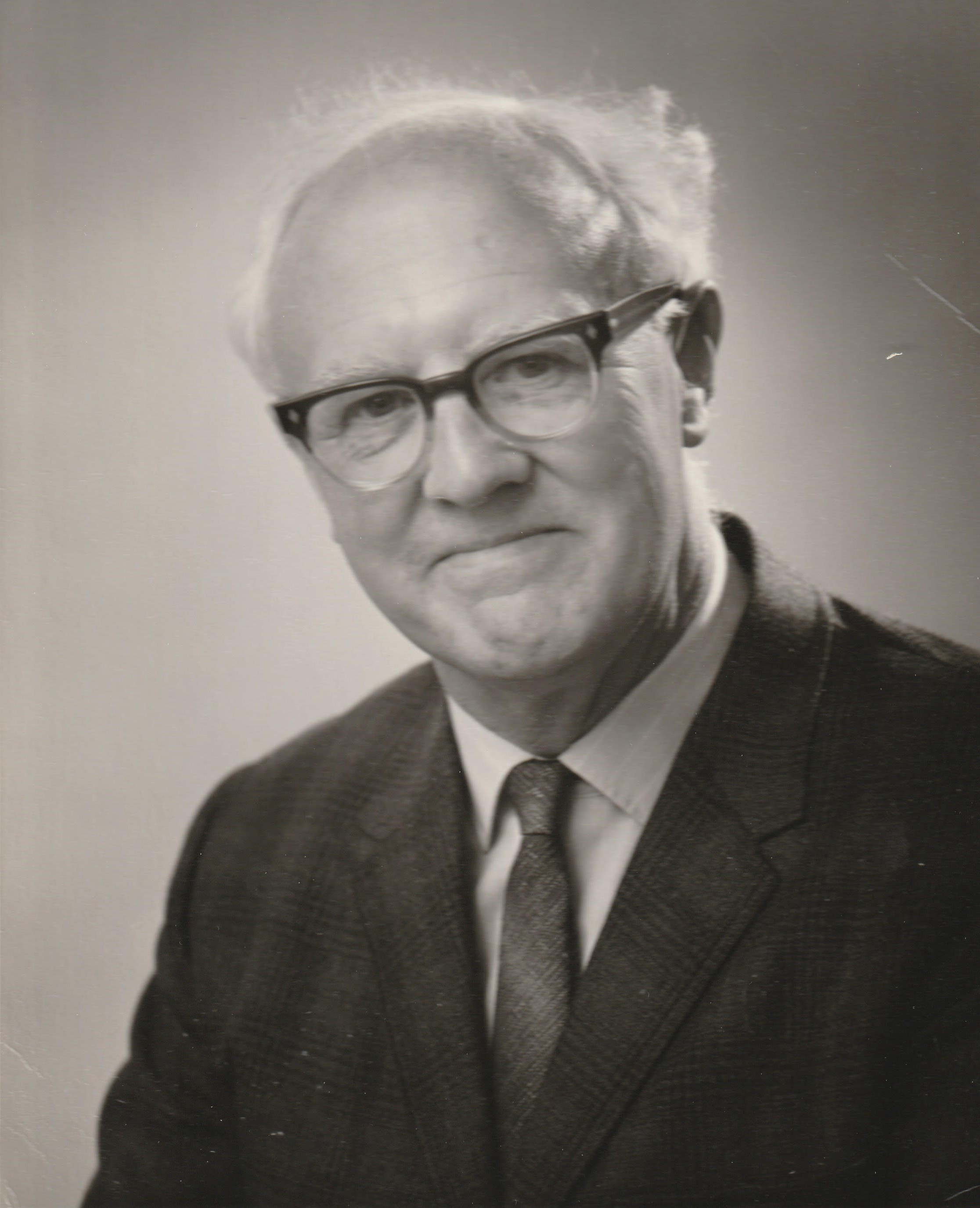Westcott donation creates lasting legacy for family and for physics research in Canada
Suzette Chan - 24 January 2023

Scan of a photograph of Carl Westcott, provided by his nephew, Peter Coggan.
In 1986, the University of Alberta accepted an endowment from Kathleen Westcott, whose late husband Carl had come from humble origins in the UK to become a pioneer of particle physics science in Canada.
The gift was matched by funding from the province of Alberta. Since then, the Carl H. Westcott Memorial Fellowship has funded 30 graduate students working on research connected to TRIUMF, the national particle accelerator that Carl Westcott worked with when he retired. The Westcott fellowship is given in the form of an unrestricted lump-sum, so that students can concentrate on their work.
Carl Westcott would have been proud, says his nephew, Peter Coggan, a retired faculty member of Michigan State University College of Medicine.
Coggan recently did some research into the history of the award which his late aunt Kathleen had spoken about. “She was very proud of uncle for establishing this award,” says Coggan.
The family lore paints Westcott as “a bit odd” for working in a field they did not fully comprehend, but they revered him nonetheless.
Westcott was born in Reading, England. Westcott’s father had left an abusive home when he was a child and rose up the ranks of the leather working trade, ending his career as foreman of the unit which upholstered the interiors of Rolls Royce cars.
Carl’s interest in academics was a bit strange to the family, but he persisted. He won scholarships that took him through to his PhD, which was supervised by Nobel laureate Ernest Rutherford.
“I think he was very grateful for having what we would call a free ride from Cambridge, and this may have influenced him to establish the fellowship as a way to pay it back, or rather, pay it forward,” Coggan says.
After graduation, Westcott’s research work included setting up a cloud chamber for detecting cosmic rays and working on military radar technology to assist the war effort. In 1944, he married Kathleen Brena Shaw and moved to the National Research Laboratories in Montreal, following a project that subsequently moved to the Chalk River Nuclear Laboratory in Chalk River, Ontario.
Coggan remembers occasional visits to England when his uncle returned for family visits. “We as a family had him on a pedestal because his intellect was quite a bit above anything we experienced,” he says.
When Coggan moved to Ontario to pursue his medical career, he visited his uncle in Chalk River several times. Wescott offered him tours of the Chalk River facility. “Walking around Chalk River and hearing how it tied into his research was fascinating.”
Coggan, whose career included establishing awards for medical students and residents, understands the value of his uncle’s gift. “It gives young scientists an opportunity to develop further, or go in directions that they couldn’t have entertained without the scholarship.”
This year’s Westcott award will be $11,000. The deadline to apply is January 31, 2023. For eligibility and application procedures, please see the Westcott Fellowshp page at the Centre for Particle Physics.